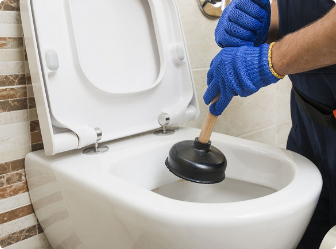
9 Ways To Prevent Clogged Drains
If left untreated, clogged drains may create unpleasant odors, poor draining, and even water damage. Fortunately, with a little attention and some preventative steps, you can keep your drains working properly. At Fuller Plumbing, we believe that preventing clogs is far easier and more cost-effective than dealing with the aftermath. Here are nine effective ways to prevent clogged drains in your home.
1. Use Drain Guards
Drain guards are simple, yet highly effective tools that can prevent clogs. These mesh or perforated covers fit over your drains to catch hair, food particles, and other debris before they can enter your pipes. They are particularly useful in sinks, showers, and bathtubs where clogs frequently occur.
2. Be Mindful of What You Pour Down the Sink
Grease, oil, and fat are major culprits for kitchen sink clogs. When these substances cool, they solidify and adhere to the walls of your pipes, gradually narrowing the passage. Instead of throwing oil down the sink, collect it in a container and discard it in the trash after it has cooled.
3. Regularly Clean Your Drains
Even with preventive measures, some debris will inevitably make its way into your drains. Regular cleaning can help keep this buildup from becoming a problem. Pour a pot of boiling water down your drains once a week to help dissolve and wash away any accumulated gunk. You can also use a mixture of vinegar and baking soda to break down organic materials.
4. Avoid Using Chemical Drain Cleaners
Chemical drain cleaners may eliminate obstructions rapidly, but they may also harm your pipes and the environment. Over time, these chemicals can cause corrosion, leading to leaks. Instead, opt for natural cleaning methods or call a professional plumber for severe clogs.
5. Brush Your Hair Before Showering
Hair is one of the most common causes of clogged drains in bathrooms. By brushing your hair before you shower, you can remove loose strands that would otherwise end up in your drain. This simple practice may drastically minimise the quantity of hair that goes down the drain.
6. Install a Garbage Disposal
Garbage disposals may help break down food particles and avoid kitchen sink clogs. However, it’s important to use it correctly. Avoid dumping fibrous, starchy, or hard things like celery, potato peels, and bones down the disposal because they may harm the blades and create clogs.
7. Run Hot Water After Each Use
After using your sinks, showers, or bathtubs, run hot water down the drain for a few minutes. This assists in flushing out any remaining debris and can prevent the buildup of soap scum and grease.
8. Use a Drain Snake
A drain snake, or auger, is a handy tool for clearing minor clogs without the need for harsh chemicals. These flexible, coiled tools can reach deep into your pipes to remove blockages caused by hair, soap scum, and other debris. Regular use can help maintain clear drains.
9. Schedule Professional Maintenance
Despite your best efforts, some clogs can only be prevented with professional help. Scheduling regular maintenance with a plumber can catch potential problems before they become serious issues. An expert can evaluate your pipes, completely clean them, and provide advice based on your home’s particular requirements.
Conclusion
Preventing clogged drains is largely about being mindful of what goes down your pipes and performing regular maintenance. By following these nine tips, you can keep your drains clear, your pipes healthy, and your plumbing in top condition. A little preventive care goes a long way in avoiding the inconvenience and expense of dealing with major clogs. At Fuller Plumbing, we’re here to help you maintain a clog-free home with our expert plumbing services and advice.